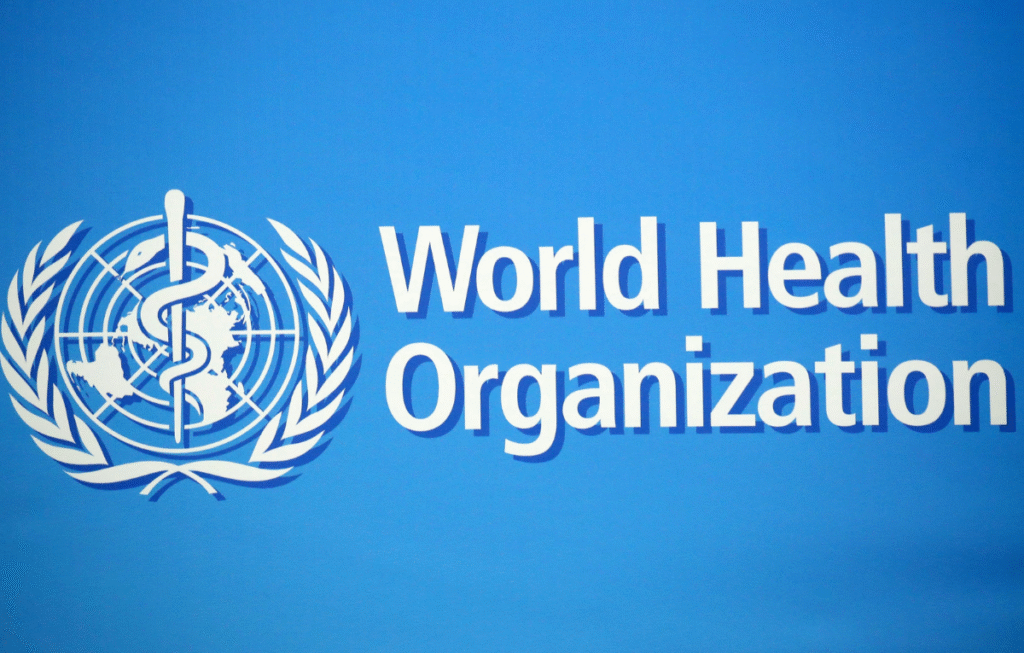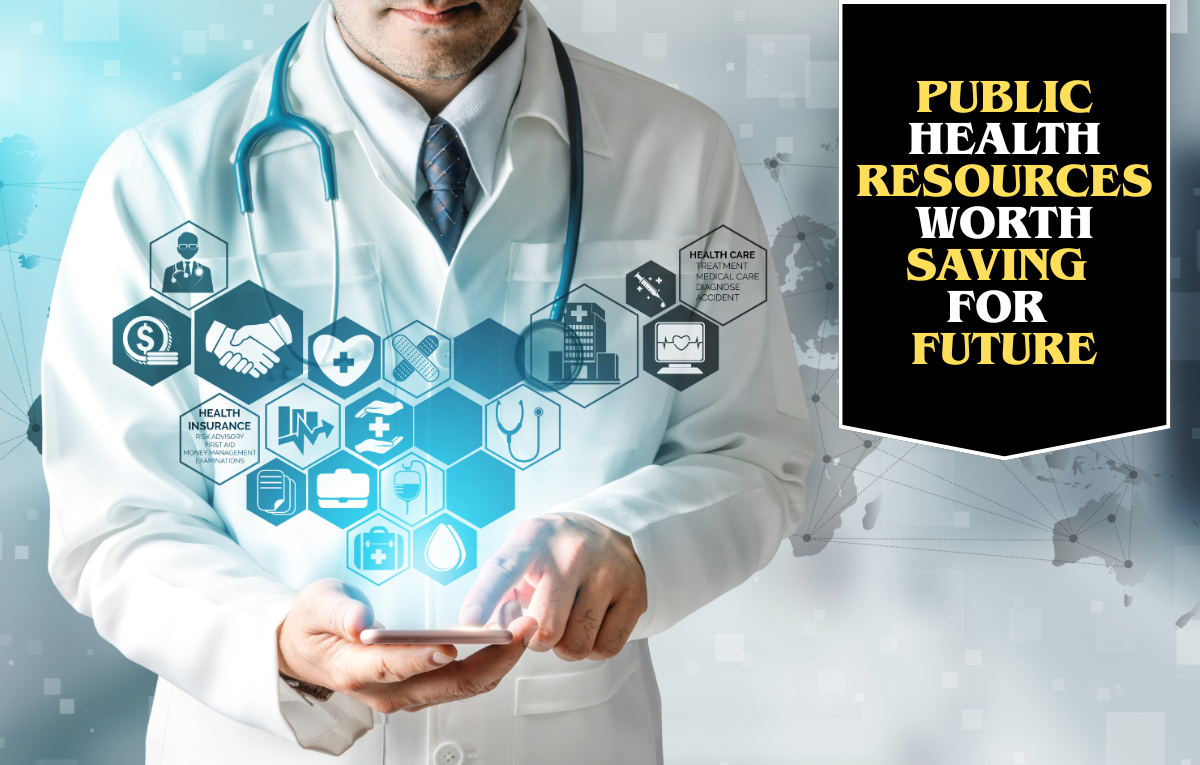Public health resources worth saving for the future
In today’s world of internet and social media, information is scattered everywhere. But the question is, is all the information reliable? When it comes to health, rumors, incomplete information, and false claims become a big problem.
Just imagine, if someone gets wrong information about disease prevention and believes it, then how serious can the result be? This is why accurate, certified, and updated information is most important in the field of public health. This is necessary not only for doctors or health workers but also for students, teachers, community leaders, and common people.
Nowadays there are many such organizations, websites, and databases that provide us with reliable and certified information. We call them “public health resources.” If you bookmark (save) them from now on, then in the future, whether there is an epidemic, a new disease spreads, or there is a need for any research, you will get the right information immediately.
In this article, we will learn in detail why these resources are important, which are the top resources, how to use them, and how they improve our lives and the health of the community.
Why is it important to save public health resources?
Many people think that if they Google, they will find everything. But the reality is that the Internet is full of incomplete and incorrect information. In such a situation, there are benefits of bookmarking public health resources:
- Credibility: These organizations provide information based on research, data, and scientific evidence. Meaning, whatever is written is tested.
- Accessibility: Most of these websites are absolutely free. You just need to have internet, and you can access them from anywhere.
- Updates: These resources provide the latest news related to new diseases, vaccines, or health policies.
- Guidance: The content provides the right resource for either students, researchers, developing a health policy for a company, or wanting to take care of your family; it directs you to where you want to go.
- Emergency Preparedness: Whether it is a pandemic, natural disaster, or the sudden onset of a disease, accessing critical information in a timely manner can save lives.
1. World Health Organization (WHO)
The World Health Organization (WHO), is the world’s largest and most recognized Public Health Organization. WHO collaborates with countries worldwide to improved health for all.

Why Save It?
- Health-related statistics and reports from around the world are available here.
- It issues guidelines on issues like diet, mental health, and disease prevention.
- It is the first to provide correct and latest information during an epidemic or disaster.
Example:
In the time span of the emergence of the coronavirus, the WHO gave the world knowledge about ways of virus prevention, rules for wearing masks, and information regarding the vaccine.
- Website: www.who.int
2. Centers for Disease Control and Prevention (CDC)
The CDC is an American organization affecting the world. It is regarded as one of the most reliable agencies in disease prevention and control.
Why Save It?
- Tells ways to prevent disease.
- Provides in-depth research and health statistics.
- Provides guidance on travel health, workplace safety, and chronic disease prevention.
Example:
Every year the CDC runs guidelines and vaccination campaigns to avoid the flu, which the whole world adopts as a standard.
- Website: www.cdc.gov
3. National Institute of Health (NIH)
NIH is an institution of America and is considered the world’s largest medical research agency. It has 27 different institutes that work on different diseases and health topics.
Why Save It?
- Deep and detailed research is available on a particular disease.
- Access is available to clinical trials and new medical updates.
- Health articles and tips are available in easy language for the general public.
Example:
If someone wants to read new research on diseases like diabetes or Alzheimer’s, then NIH is the best place.
- Website: www.nih.gov
4. PubMed
PubMed is a vast online library with more than 35 million medical and biomedical research articles.

Why Save It?
- It is the most extensive resource for peer-reviewed journals.
- Helpful to students, researchers, and doctors.
- Has sophisticated filters that help you search for articles on a specific disease or treatment.
Example:
If a student in the medical profession asks about the relationship between lack of sleep and heart disease, there will be thousands of published research papers on the subject in PubMed.
- Website: pubmed.ncbi.nlm.nih.gov
5. UNICEF
UNICEF, or United Nations Children’s Fund is working for child and maternal health. Their work is important, especially in developing and poor countries.
Why Save It?
- Works in areas like nutrition, immunization, water sanitation, and education.
- Data and case studies of real ground-level work are available.
- Very useful for NGOs, policymakers, and social workers.
Example:
Many schemes were made based on UNICEF reports on malnutrition in India and Africa.
- Website: www.unicef.org
6. Global Health Data Exchange (GHDx)
The Global Health Data Exchange (GHDx) is a vast repository of health-related data maintained by the Institute for Health Metrics and Evaluation (IHME).
Why Save It?
- GHDx has worldwide data on diseases, deaths, and health systems.
- Graphs and visualizations to show all kinds of trends make it understandable.
- A treasure trove for researchers and students.
Example:
If you want to research the increase in cases of heart disease over the last 30 years, GHDx is the right place.
- Website: ghdx.healthdata.org
7. Local Health Departments
Global and national resources are important, but the real health work is done at the local level. Health departments of every state and city run their own websites.

Why Save It?
- This is where you can find information about diseases and health related to your area.
- Give information about vaccination drives, disease alerts, and local schemes.
- Directly useful to citizens and local doctors.
Example:
In India, the state health department website gives timely alerts and preventive measures when dengue spreads.
- Find your state/city health department website.
8. MedlinePlus
MedlinePlus is a site made for the general public. It is also run by the US National Library of Medicine.
Why Save It?
- Health articles and videos are available in easy language.
- Medical encyclopedias and FAQs are available.
- Information is available in many languages.
Example:
If someone wants to understand high blood pressure in common language, then MedlinePlus is the best site.
- Website: medlineplus.gov
9. The Lancet and other health journals
Journals like The Lancet, BMJ Public Health, and the American Journal of Public Health (AJPH) are the most prestigious public health journals in the world.
Why Save It?
- Conveys research and studies about recent discoveries.
- Provides thorough analyses on climate change, pandemics, health policies.
- Very relevant for students and policymakers.
Example:
The Lancet’s Climate Change and Health series has been helpful in changing policymakers’ thinking around the world.
- Website: www.thelancet.com
10. Healthline and WebMD (for quick information)
Although these are not as research-based as PubMed, they are extremely useful for the general public.

Why Save It?
- Great for general health questions.
- Provides information that is vetted by doctors.
- Answers are available instantly and in simple language.
Example:
If someone needs a cold home remedy or diet tips, these sites provide instant help.
- Website: www.healthline.com
How to use these resources correctly?
- Categorize your bookmarks—create folders in your browser (for example, Global, Local, Data, Research).
- Subscribe to newsletters—WHO, CDC, and NIH regularly put out updates!
- Check information—make sure you crosscheck anything with at least two sources.
- Use for both personal and professional purposes—whether, learning for an exam, work project or family health.
- Always stay updated—this health information keeps changing, so keep looking for new guidelines.
Final thoughts
Health is not accomplished only through the talents of doctors or politicians; it also involves the layman. Trustworthy, verifiable information can change behavior; so, how we respond can, for instance, affect how we protect our own family, build our community, or even judge ourselves as worthy participants in national policies.
You can always have a tried and “trusted” “health library” ready for reference by bookmarking all such pages from international bodies and agencies like the WHO or CDC, as well as local health departments.
Misinformation can cost time and life. It’s best to save these public health resources now and strengthen your health as well as that of your entire community.
FAQs:-
What are public health resources?
Public health resources are trusted tools, websites, and organizations that provide reliable health information, data, and support for disease prevention.
Which organizations provide the best public health information?
Top organizations include WHO, CDC, NIH, and local health departments that offer updated and evidence-based resources.
How do public health resources help professionals?
They offer guidelines, policy updates, and evidence-based data to improve healthcare decisions and practices.
